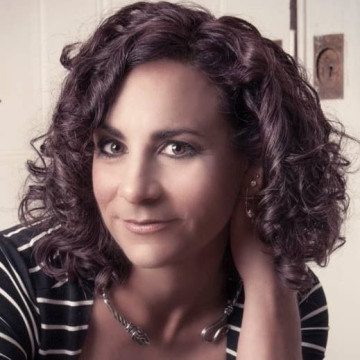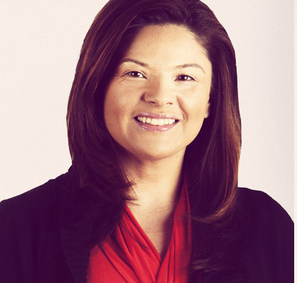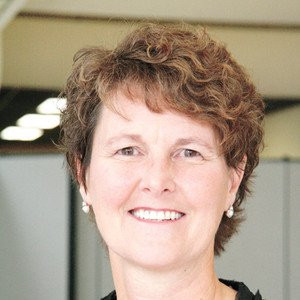It’s All About Education: Transforming Children’s Lives and our Nation’s Future
Wednesday, July 08, 2015
A few weeks ago, I had the opportunity to hear professor and writer David L. Kirp speak on the topic, “Is Public Education Dead?” His answer was that, while our public schools nationally are, for the most part, not meeting the needs of the majority of our population, there are some schools (and school systems) that are serving students quite well; and we can learn from them to improve the educational experience for all.
With an extensive background in law, public policy, and education, Mr. Kirp has taught at the Harvard Graduate School of Education, served as the founding director of the Harvard Center on Law and Education, and is currently a professor at the Goldman School of Public Policy at the University of California at Berkeley. He writes for numerous publications and has authored several books, including Kids First: Five Big Ideas for Transforming Children’s Lives and America’s Future.
Professor Kirp believes that we have both the knowledge and the wherewithal to improve not only our schools, but also children’s lives and our nation’s economy. He says there is no secret, and that many of the success stories in schools are based on W. Edwards Deming’s theory of continuous improvement. However, the process of reform takes time and patience, both of which tend to be in short supply in our political landscape.
GET THE LATEST BREAKING NEWS HERE -- SIGN UP FOR GOLOCAL FREE DAILY EBLASTIn the book Kids First, Kirp posits that the United States needs to adopt a new paradigm for how we think about kids. He refers to its underlying strategy as the Golden Rule: “Every child deserves what’s good enough for a child you love.” In this model, all children deserve to grow up in a nurturing environment that gives them a chance to learn, grow, and succeed, regardless of their socioeconomic backgrounds or the resources of their communities.
Kirp suggests five big ideas that would transform children’s experiences “from crib to college” and impact our nation’s future:
- A parent support program for all new parents;
- High-quality early childhood education;
- Coordination between schools and communities to improve program offerings;
- Mentors for those children who need access to a caring, stable adult;
- And a nest egg for every child that could be used to help pay for college or start a career.
Each of these big ideas has been proven to be effective, will promote equity and decrease the achievement gap, and is a sound investment in our future.
In fact, according to Kirp, every aspect of this model is already happening in various places throughout our country. Every one of the items above has already attracted bipartisan support in Congress. If children’s advocates were to mobilize and coordinate efforts, putting aside their individual programmatic concerns and rallying behind this “Kids First” agenda that would enhance a range of opportunities for all children from crib to college, this vision could become a reality.
What would this Kids First agenda cost? Mr. Kirp estimates that the whole program could be underwritten for about $50 billion per year. That may sound like a lot, but it’s actually less than two percent of the $3.9 trillion federal budget. In fact, government spending on children’s programs has dropped to less than 8% of all federal spending, according to the First Focus Children’s Budget 2015.
The Kids Share 2012 report on federal expenditures found that the United States spends seven times more on the elderly than we do on our children. Its authors state that under current policies, beginning in 2017, “the federal government is projected to spend more on interest payments than on children.” Since most citizens agree that children are our future and that America’s success depends upon the success of our children, this seems shortsighted.
Bruce Lesley, president of First Focus, states, “Since kids do not vote, we need an informed electorate that will translate its long-standing support for children into votes. This requires that advocates for children, including parents, grandparents, educators, etc., work together to build a grassroots movement to educate the public and demand from policymakers that they put forth a real policy agenda… that would improve child well-being and then hold those policymakers accountable for real results.”
We know how to eliminate the achievement gap. We know how to improve children’s lives for the better, providing support for families and a high quality education from birth through college for every child. We have the financial ability to make this vision a reality. We talk about how important children are, but we don’t always put our money where our mouths are. As David Kirp writes, “When the topic is children, Washington is often long on love and short on cash.”
We can change that. As voters, we need to demand more from our politicians. Although the benefits of a Kids First agenda might not be fully realized for fifteen to twenty years, longer than the life cycle of most political careers, that does not mean those benefits should be ignored. Our children, and our nation, deserve better. They are worth the investment.
Lauri Lee is an independent consultant with over twenty years of experience in both public and private education, with learners from infants through adults. With experience in teaching, marketing, communications, social media, development, admissions, and technology, she is able to synthesize many of the issues facing our educational system today. She lives in Providence, RI with her family, a big dog, and a small cat. She blogs at http://www.AllAboutEducation.net; and you can follow her on Twitter at @fridovichlee.
Related Slideshow: RI Experts on the Biggest Issues Facing Public Education
On Friday November 22, the Hassenfeld Institute for Public Leadership at Bryant University, the Latino Policy Institute of Roger Williams University, the Rhode Island Association of School Committees, the Providence Student Union, and RI-CAN: Rhode Island Campaign for Achievement Now will host Rhode Island leaders in the public and nonprofit sectors for a symposium on "the civil rights issue of the 21st century, adequacy and equity and the State of Education in Rhode Island."
Weighing in on the the "three biggest factors" facing education in the state today are symposium participatnts Gary Sasse, Founding Director of the Hassenfeld Institute for Leadership; Christine Lopes Metcalfe, Executive Director of RI-CAN; Anna Cano-Morales, Chairwoman of the Board of Trustees, Central Falls Public Schools and Director, Latino Policy Institute at Roger Williams University; Tim Duffy, Executive Director, RI Association of School Committees; and Deborah Cylke, Superintendent of Pawtucket Public Schools.
Related Articles
- It’s All About Education: How Vaccination Affects Schools – and Society
- It’s All About Education: Is the American Dream a Pipe Dream?
- It’s All About Education: Changing Lives with School Lunches
- It’s All About Education: How Breakfast Could Help Close the Achievement Gap
- It’s All About Education: Choosing the Right School for Your Child
- It’s All About Education: Inequities in the College Admissions Process
- It’s All About Education: A Recipe for Disaster - Common Core Standards for Kindergarten
- It’s All About Education: Some of Education’s Best Ideas from 2014
- It’s All About Education: Social Promotion is Not the Problem
- It’s All About Education: Schools that Harness the Power of Nature
- It’s All About Education: Free College Tuition - Why Just Community College?
- It’s All About Education: After School Programs Make a Difference
- It’s All About Education: Learning Life Skills at Hope High
- It’s All About Education: The Arts, Education, and Transformation
- It’s All About Education: High-Quality Early Learning: Necessary For All
- It’s All About Education: A Broader Definition of Education
- It’s All About Education: Reading for Pleasure Predicts Academic Success
- It’s All About Education: Divine Providence: Engaging Community
- It’s All About Education: Can Education Drive Social Change?
- It’s All About Education: Re-Imagining Our Educational System
- It’s All About Education: Failure to Launch - It’s Not Just a Movie
- It’s All About Education: School Choice - Vouchers and Tax-Credit Scholarships Don’t Pay
- It’s All About Education: Making a Commitment to Rhode Island’s Children
- It’s All About Education: How Poverty Impacts Brain Development and Learning
- It’s All About Education: Why Summer Vacation Should Be Just That













